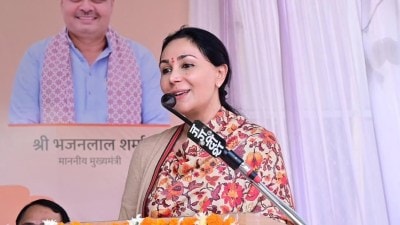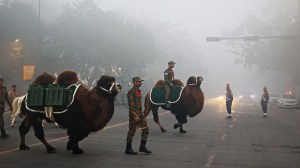Stable and able?
The proposal could be seen as only a short-term political ploy. It can be argued that the synchronisation of Lok Sabha and Assembly polls th...

The proposal could be seen as only a short-term political ploy. It can be argued that the synchronisation of Lok Sabha and Assembly polls that Deputy Prime Minister L.K. Advani speaks of will help the BJP club the approaching elections in the next year or so, into a grand referendum: Vajpayee versus Sonia.
A personality-based contest, like the one Indira Gandhi brought on in 1971 after she abruptly announced early polls in the December of 1970, one full year before the fourth Lok Sabha could complete its term, and the very first time a PM had called for a mid-term poll. The idea of simultaneous elections could even be seen to be part of a BJP/NDA gameplan to divide the prospective Congress-led coalition, given that the Congress would inevitably be fighting its national level partners in the state arenas. Yes, it could be just a politically motivated suggestion. But it probably is more than that.
It is not for the first time such a proposal has been mooted. Most recently, Vice President Bhairon Singh Shekhawat spoke of the wisdom of rescheduling the poll time-table. It had also come up before the National Commission to Review the Working of the Constitution. The concern about the possibilities of good governance while parties keep an eye on the constantly ticking poll clock, has grown increasingly articulate over the last decade or so. An increasingly audible argument attributes the failure of successive governments to deliver the goods to the fact of frequent elections. This is seen to hold especially true in matters of economic reform.
Here, governments at the Centre consistently shirk the hard decisions, pointing to one impending election or another, in one state or the other. This is compounded by the fact that we live in times when the tremors of state level contests immediately rock the political centre as well. Arguably, the demand for synchronising elections draws from this unease that many feel with crucial long-term issues being sensationalised into campaign issues. In a sense, it is a demand for less political contention and for more political calm. And, of course, it will also drastically reduce election costs.
But this demand for stability, some might call it fixity, must be balanced with another imperative. In parliamentary democracy, a government stays in office as long as it retains the trust of the majority of the elected representatives. Also, it is the prerogative of the leader of the government to dissolve the House and call for elections. A constitutional amendment would therefore be required for any synchronicity of state and central level polls. Parliament is in session and it is up to our parliamentarians now to debate if, and to what extent, the pursuit of stability can be allowed to modify the cardinal principle of parliamentary democracy.
- 01
- 02
- 03
- 04
- 05































